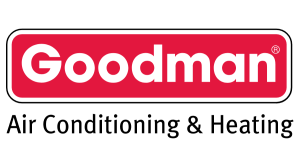Is HVAC a Good Career? Exploring Opportunities, Benefits, and Challenges
The heating, ventilation and air conditioning (HVAC) sector is a must in the modern world. It is responsible for cooling places in hot summer seasons, keeping them warm during winters, and even purifying the air in indoor environments of buildings and other facilities, so people are comfortable. However, apart from its role in people’s life, a lot of people ask the question, “Is HVAC a good career?”
So in this blog, we will discuss what it takes to be in the hvac industry, the opportunities and benefits of having an hvac career, the hurdles that you are likely to face, and what makes you choose to pursue this trade. As seen at Summers Comfort Heating & Air, it is already a very fulfilling field and the demand for professionals in HVAC is ever increasing. For people contemplating getting into the HVAC industry, or are merely interested about what this field has to offer, keep reading!
The Demand for HVAC Technicians is on the Rise
Unarguably, one of the primary considerations for the HVAC career being favorable has to be due to the conspicuous and continuous growth of technically skilled personnel. As long as there are structures to be heated, cooled and ventilated, there will always be skilled man power to tend to HVAC concerns.
The U.S. Bureau of Labor Statistics in a report indicates a high demand for HVAC technicians, with employment projected to grow at a rate of 5% between 2022 and 2032, which is above the average for most careers.
There are several reasons which explain this growth:
Old Systems: Older HVAC systems are now worn out and obsolete and so repair, maintenance, or even replacements are now in high demand.
Energy Efficiency tide: Due to the focus on eco-friendliness, there is now a trend of homeowners and businesses upgrading their HVAC systems to energy-efficient systems which require specialized installation and touch-ups.
More New Buildings: More residential, commercial, and industrial construction translates to more HVAC systems that must be installed by qualified technicians.
Improved Technical: With the introduction of smart thermostats, automatic systems, and energy-efficient systems, the HVAC business is rapidly changing. This brings about prospects for technicians who are knowledgeable about recent developments and can incorporate new developments into their scope of work.
The Benefits of a Career in HVAC
Picking up HVAC as a career path opens up a whole new world of opportunities that are both rewarding and secure financially. A few obvious benefits that can be observed while working in HVAC are:
1. Job Security
For individuals considering a career in HVAC, one of the most appealing features is the job security available. Almost every structure has an HVAC system in place, and such systems need to be set up, serviced, and repaired regularly. Only a few other jobs can be done remotely or through automated systems, while HVAC tasks require hands-on skills and one’s physical presence.
Even though the economy may be in a bad shape, there is always a need for HVAC technicians because people will always require a comfortable environment. From houses to hospitals and even offices or factories, heating, ventilation, and air conditioning systems are vital, creating a constant demand for people in this industry.
2. High Earning Potential
In terms of salary, one can expect a strong one in HVAC with a possibility of even better pay with experience and certification. The BLS reports that in the 2023 US labor market, the median annual salary for HVAC professionals is around 50,590 dollars, with the best-paid 10% earning above 80,000 dollars. It depends on the location of the job as well as the specific area of expertise, nevertheless, paying for the adequate HVAC training assures the possibility of heating professionals earning a good living, especially in fast-growing HVAC service areas.
Moreover, if you decide to run your own business, the amount of money that you can make begins to expand even more. In this regard, HVAC business owners have complete control over their pricing structures, the scale of projects that they can take on, and ultimately, the business itself.
3. Opportunities for Advancement
This advancement in one’s career opportunities is also labelled extremely high in the HVAC world. You can also branch out into specialized career areas or management as you accumulate experience. So, what are some of the areas of career advancement in HVAC?
Lead Technician or Supervisor: Getting into higher positions is a natural progression for most technicians who have been working for longer periods. You can find yourself in charge of lower rank technicians and supervising various jobs.
HVAC Engineer: You can further your education so that you can come up with new HVAC system designs and work on making changes to those that already exist.
Taking the leap – Opening your own HVAC company gives you the freedom to choose your clients, make your schedules, and earn even more.
Vast Knowledge: From a commercial system that is large in size to refrigeration systems or energy-efficient systems, HVAC technicians are broadened in the scope of opportunities they can pursue.
4. Manual Work and Job Satisfaction
For the hands-on people who love fixing and troubleshooting things, HVAC is quite a fulfilling industry to be in. HVAC entails a number of functions that require the understanding of how systems work so that when there is a breakdown of a system designed to keep the customers comfortable, there are ways to diagnose and restore the system. There is hardly a dull moment because every day a customer might call for an emergency and require the latest technology to be installed in the HVAC systems.
If fixing things and making people comfortable is something you enjoy, you can witness that HVAC is a worthy career. You will actively participate in the client’s betterment, and there is a satisfaction that comes with having provided or installed a system that works.
5. Variety in Work Environment
There is no dull moment in the HVAC career since there are many work settings that one will find. As HVAC technicians, one may be called to homes, offices, hospitals and schools, factories or even in the open air. Every day is different, and you’ll encounter a wide range of systems and challenges, from fixing a residential air conditioner to installing a large commercial heating system.
It is this diversity that makes the work comfortable and there is very little chance of someone being cooped behind a desk. A person looking for a career where he pains to stay in one place and is not static would enjoy being an HVAC technician as there is constant movement and varying levels of interaction as well as environments to work in.
Education and Training Requirements
HVAC does not often require a bachelor’s degree which is advantageous to those who are looking to get rid of student debts. But it does need some amount of training and certification in order to get into the field. Here’s a summary of how a person can become an HVAC technician in most cases:
1. Graduating High School.
The first step to a career in HVAC is a high school diploma or an adult education certificate (GED). If you want to succeed in these lines of work, it would be useful to have a solid education in mathematics, physics, and vocational training.
2. HVAC Certification Programs.
Most negotiable technicians after graduating from high school will seek a job or go to college for advanced education. The duration can vary within 6 months to 2 years and topics that may be included are:
Design and Installation of HVAC Systems
Electrical systems
Refrigeration
Thermodynamics
Safety measures
You will be able to complete requirements such as entry level jobs and those which require accreditation after completing a certified HVAC program.
3. Apprenticeship
At some point, or even after formal training, an HVAC student may decide to take an apprenticeship. Many of such are managed by local unions, trade associations, or HVAC companies themselves. You will be doing on-site work with a licensed HVAC technician during an apprenticeship. Usually, it takes 3 to 5 years to become an HVAC technician through an apprenticeship program.
4. Certifications and Licensing
When you finish your trade education or your apprenticeship, the next step for you will be to earn the appropriate certifications and licenses that are needed for your region. Some of the most common include:
EPA Section 608 certificate: Of the Environmental Protection Agency (EPA) stating that an individual can handle refrigerants. This applies to all the technicians that work with air conditioning and refrigeration.
NATE Certification: The North American Technician Excellence (NATE) is one of the very popular distinctions in the HVAC sector and can prove useful to most professionals in this field. It assists with a technician gaining better employment opportunities by showcasing their knowledge and skills.
Local Licensing: A large number of states and municipalities require any non-supervised work to be performed by licensed HVAC technicians in order to perform the work independently. Various locations have various requirements but most involve sitting for an exam.
5. Professional Development
HVAC systems are continually improving which is particularly true for energy efficient and technologically advanced systems. HVAC professionals are obliged to continuously upscale their skills and knowledge. Numerous people undertake training ITT courses, virtual classes or take up specific courses offered by manufacturers.
Drawbacks of an HVAC Career
An HVAC career is however worthwhile. Following are some negative factors worth considering:
1. Physically Challenging Occupation
The amount and type of work involved in HVAC work is not easy at all. You may have to carry heavy machinery, crawl into bricks and mortar, or have to face elements like rain and snow while at work. You may be exposed to heat and cold when working outside, select portions of your home like attics, basements or even rooftops. One just has to maintain good health to be ready for such activities.
2. Unpredictable Work Schedules
A breakdown of HVAC systems is not confined to only the hours of operation during office practices. Technicians have to attend to call outs for repairs even during odd hours, weekends or holidays. These unusual hours of work may have some benefits as the payments may be more, but there is a cost as they may impact your family life.
3. Exposure to Hazards
HVAC unit installation and repair requires the use of certain dangerous materials such as refrigerants alongside sharp tools and engaging electrical spaces. Even if there are safety protocols observed because the risks are many, accidents, or exposure to hazardous materials is possible. Safety measures and safety practices in this profession should be appreciated in absorbing positions.
4. Seasonal Workload
HVAC services seem to be in high demand during hot summers or extreme cold winters. Because of this, there is a tendency during these seasons for HVAC technicians to overwork themselves while demand probably would be lower in the off-season. Many people find it hard to manage a seasonal workload of this nature but at the same time, it offers an opportunity to accept extra hours.
Why HVAC Might Be the Right Career for You
We’ve spoken about the tension and the benefits of working in the HVAC career, it’s time to move on to a more personal stance and that is whether this career is one you would like to pursue. We’ve got a bullet point on the things to consider below.
Hands-on work, do you like it? It goes without saying that if you enjoy hands-on or technical work, HVAC can be a fulfilling career option.
Job security, is that a need for you? HVAC technicians are in demand and the demand appears to be stable meaning there is job security.
Do you want to skip the hassle of a four-degree college? HVAC is ideal because it provides a great job while also freeing the individual from a four-year college degree.
What are your hobbies? Because no two days are alike in the HVAC industry, there are many opportunities for employment and advancement. This job will always keep you busy if you are a person who enjoys a fast-paced workplace.
Are you healthy enough? They should be under the immediate supervision of someone fit for the job as it can be physically strenuous. They should be healthy enough to perform such tasks without any complications.
Is HVAC a Good Career?
In summary, an HVAC career is fulfilling and consistent, offering reasonable employment prospects and a good salary. There are some physical attributes and challenges that need to be met, but the other side of working in this sector is appealing for people who are interested in practical, machine-related jobs and need long-term financial support.
Without a doubt, we at Summers Comfort Heating & Air appreciate the presence of capable HVAC workers. Anyone who is thinking about entering the industry should know what to expect. With the increased requirement for HVAC services, now is the perfect moment to enter this career.
For any inquiries you may have regarding the HVAC professions, or even how to train for them, contact our staff at Summers Comfort Heating & Air. We would be glad to assist you with our knowledge and prepare you for an advantageous job in HVAC.




